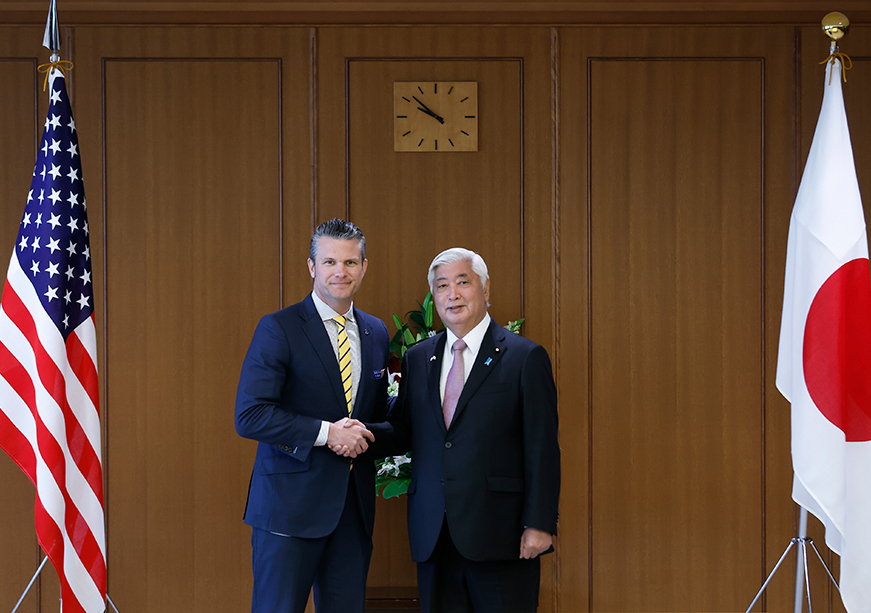
On 29 July, the Foreign Ministers of India, Australia, Japan, and the US met in Tokyo for the Quad Foreign Ministers’ Meeting. Although it is fairly routine, the significance of this meeting and the joint statement issued on the occasion is underlined by the context of the complex geopolitical dynamics that preceded the meeting. While the Quad countries have displayed continued synergy on key issues of common interest, recent developments had prompted a rethink on the efficiency and the promise of the grouping. Notably, much of the heat for the diverse and often opposed foreign policy compulsions was directed at New Delhi. Two important events that sparked speculations over the future of Quad were the emergence of a new minilateral, Squad, with Japan, Australia, and the US, the Philippines, and India’s continued engagement with Russia, and Prime Minister Modi’s recent visit to Moscow at a time when the crisis in Europe is at its peak.
Although it is fairly routine, the significance of this meeting and the joint statement issued on the occasion is underlined by the context of the complex geopolitical dynamics that preceded the meeting.
According to many, the emergence of Squad seemed eerily poised to replace the Quad with a specific focus on common geography in the Indo-Pacific, coupled with the willingness of all the member countries of the grouping to aggressively push back against China, especially in the South China Sea region. On the other hand, strategic circles in New Delhi and abroad were rife with speculations over the widening gap of strategic convergences among India and the other Quad partners in lieu of Modi’s display of bonhomie with Russian President Putin, even as the other Quad partners continue to stand firmly with Ukraine in the European context. These two developments raised the question of whether India’s utility for its Quad partners was increasingly diminishing. However, the recent meeting between the Foreign Ministers of the Quad countries in Tokyo, and the joint statement issued thereafter suggests otherwise. A close reading of the joint statement amply clarifies that the Quad members continue to accord critical importance to not only the grouping in the Indo-Pacific but also to the role of India in wider maritime security and governance architecture in the region.
The joint statement released by the Foreign Ministers of the Quad countries covers a wide range of critical issues of common focus among the members and is also distinctive as it appears to accommodate India’s interests in the region, capturing the complexities and nuances of New Delhi’s outlook. While the statement reiterates several long-standing cornerstones of the Quad, such as the ASEAN-led regional architecture, humanitarian assistance and disaster relief (HADR), the centrality of UNCLOS in mitigating sea-borne tensions, maritime domain awareness, cooperation on critical and emerging technologies, cyber security, etc., the statement also makes careful and measured references of China and its continued belligerence in the South China Sea (SCS). Moreover, the statement also underscores the importance of the Indian Ocean theatre and the need to strengthen cooperation with the Indian Ocean Rim Association (IORA). Notably, the statement also alludes to India’s core national security concerns, highlighting terrorist attacks in Mumbai on 26/11, as well as Pathankot, naming Lashkar e-Tayyiba (LeT), Jaish-e-Mohammed (JeM), etc.
Overall, the joint statement released in the aftermath of the Quad Foreign Ministerial meeting indicates that the Quad partners see the grouping as vital in shaping the regional architecture in the Indo-Pacific.
Overall, the joint statement released in the aftermath of the Quad Foreign Ministerial meeting indicates that the Quad partners see the grouping as vital in shaping the regional architecture in the Indo-Pacific. While Australia, Japan, and the US are engaged in various other minilateral groupings in the Indo-Pacific, with other important partners, India remains key in shaping the regional architecture in the Indo-Pacific. This is because of the geopolitical heft India brings to the table. Importantly, among the key advocates of the Indo-Pacific, India remains the only significant player in the Indian Ocean theatre, a vital geography in the wider Indo-Pacific region. As the Indian Ocean component of the Indo-Pacific construct gains currency, India’s role in the regional strategic puzzle is only likely to augment. Additionally, with a bourgeoning market, India is poised to emerge as a critical alternative across sectors as Quad countries look to diversify their economic engagement.
Therefore, the recent Quad Foreign Minister’s meeting advances two key notions. First, it puts to rest the speculations questioning the future of Quad. Second, it underscores India’s importance in shaping maritime security and governance framework in the Indo-Pacific. The grouping remains vital for strengthening synergy among like-minded democracies for a free, open, and inclusive Indo-Pacific. Quad is the only minilateral with an expansive geographic presence across the Indo-Pacific expanse. It is further appreciated by the diversity in strategic objectives of the members of the grouping. It must be underlined that even though the member countries of the Quad may have varied positions on pressing global issues, the meeting of the Quad Foreign Ministers and the joint statement released thereafter signals remarkable continuity in synergy among the four players with regards to the Indo-Pacific. The strategic maturity of the grouping is also evident in the way the statement has sought to encapsulate the sensitivity of the strategic compulsions of the members through its measured wording.
The recent Quad Foreign Minister’s meeting advances two key notions. First, it puts to rest the speculations questioning the future of Quad. Second, it underscores India’s importance in shaping maritime security and governance framework in the Indo-Pacific.
Furthermore, the focus should now shift to how the grouping can advance their collective interest in the Indo-Pacific. While the maritime security pillar of the Quad remains robust, as the Malabar Naval Exercise continues to traverse various critical geographies in the Indo-Pacific, focus now needs to be directed at other critical sectors. The advent of new technologies is one such critical sector for the Quad countries. Interestingly, the grouping has formidable potential to both innovate and consume new technologies to boost digital public infrastructure and maritime domain awareness. While the recent meeting has moved the needle in various sectors, the key takeaway remains, reiteration of the importance of India in shaping a maritime security and governance architecture in the Indo-Pacific, and by extension the pivotal role of the Quad.
Sayantan Haldar is a Research Assistant with the Strategic Studies Programme at the Observer Research Foundation.
The views expressed above belong to the author(s). ORF research and analyses now available on Telegram! Click here to access our curated content — blogs, longforms and interviews.




 PREV
PREV


